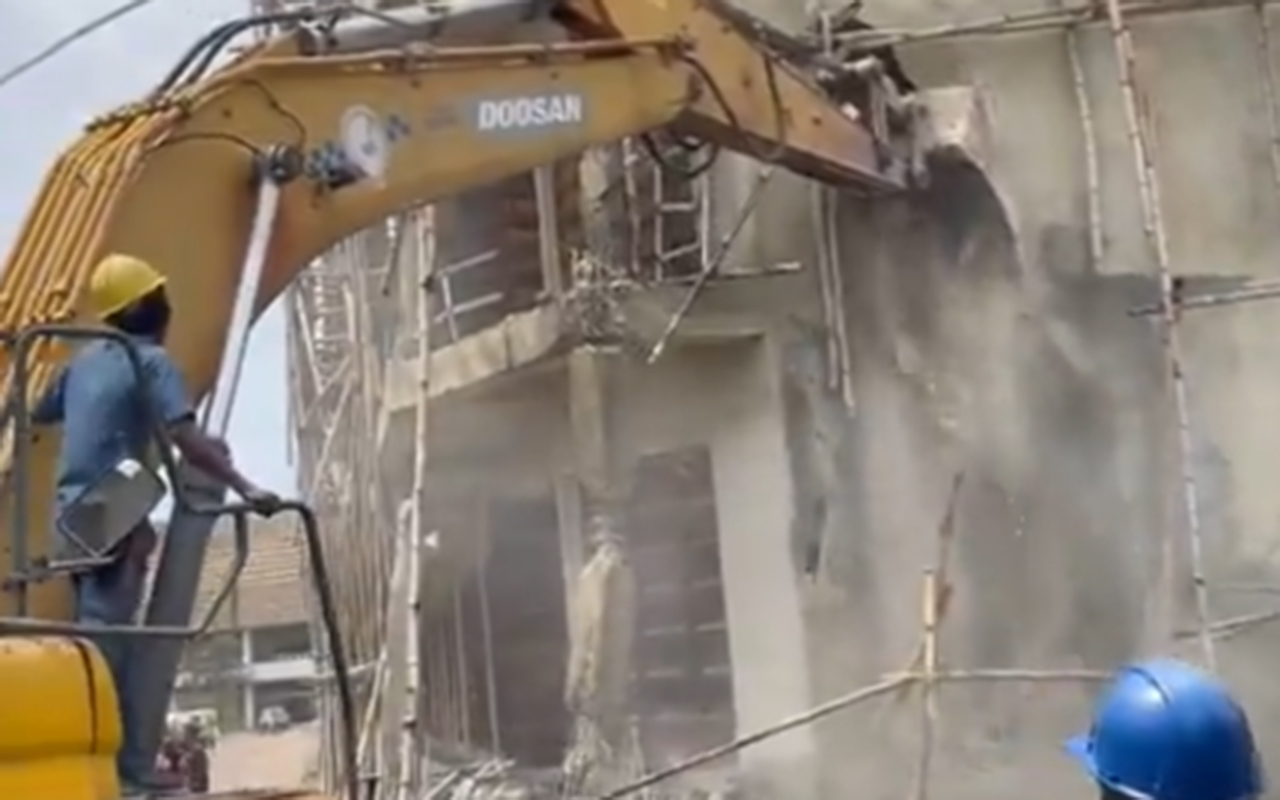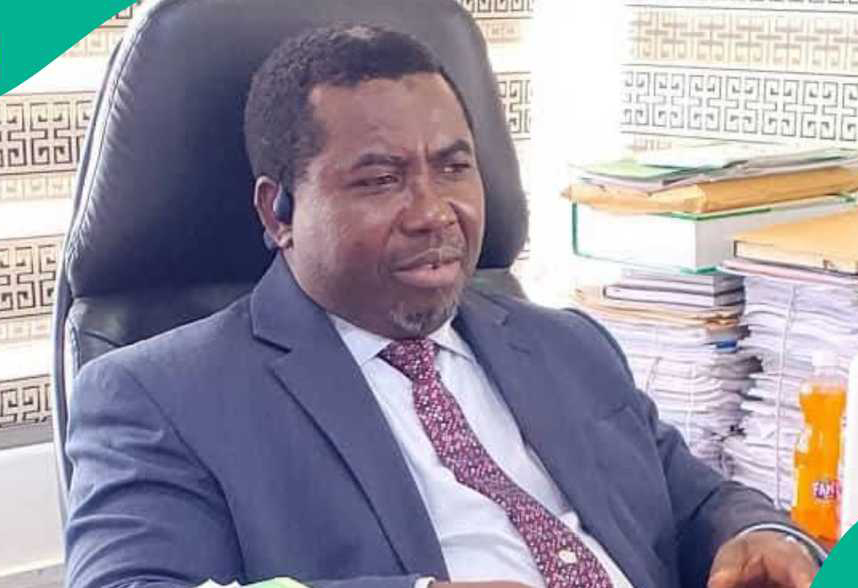The demolition of multi-billion-naira shops at the Trade Fair Complex and 19 other buildings in Lagos has again raised posers on the management of perceived violations of town planning regulations, juxtaposed with government responsibility for order, fairness and promotion of industry.
Clearly, huge defects in the proper management inform the wave of anger, confusion, and grief among traders and property owners, many of whose livelihoods have been upended overnight. What has emerged is not merely a dispute over land or planning regulations but a deeper question about governance, transparency, and the place of citizens in urban development.
The Lagos State Government insists that the demolished structures violated planning laws, while affected traders and developers argue that they either had valid approvals or were never given fair notice. Some claim to have secured federal approvals, raising the long-standing tension between state and federal authority over land ownership and allocation. The situation is confusing and the consequences are far-reaching.
The first issue that deserves scrutiny is whether due notice was served before the demolitions. Urban planning laws, like all laws, derive legitimacy from fairness and transparency. If a government believes a building contravenes planning regulations, it has an obligation to notify owners, specify the offences, and give a window for rectification or appeal, to avoid the use of arbitrary force.
In view of allegations by traders at Trade Fair that they were not given proper notice before the demolition, the Lagos State Building Control Agency (LASBCA) and Ministry of Physical Planning and Urban Development should come clean: were notices issued, to whom, and when? Were there public hearings or opportunities for dialogue? Without clear answers, the government risks being seen not as an enforcer of order but as an oppressor of livelihoods.
Another curious aspect is the claim by some owners that they had obtained approval from federal agencies. The Trade Fair Complex, after all, has long been entangled in disputes between federal and state governments. If the federal government, through its agencies, gave certain concessions or leases, can Lagos State unilaterally override them? The 1999 Constitution vests land within a state in the governor, but federal land ownership and concessions create legal grey zones.
Instead of bulldozers, this should be a matter that calls for amicable resolution, spearheaded by government officials or even the courts. If Lagos believed such approvals were invalid, why not challenge them through legal and political processes? By demolishing the shops, the state has deepened the conflict, apparently punishing traders who are innocent middlemen in a tussle between two tiers of government.
Perhaps the most unsettling question is the timing. Why did Lagos State wait until now to act against structures it considers illegal? Many of the demolished buildings have stood for years, housing thriving businesses and generating economic activity. If the buildings were truly illegal, the government was complacent in looking the other way for so long. Its silence encouraged traders to invest, expand, and commit their life savings. To turn around suddenly with bulldozers is more of a betrayal than an enforcement.
This inconsistency undermines trust in governance. Regulations are meant to guide and protect, not to serve as landmines waiting to explode at the whim of authorities. By delaying enforcement, the government itself becomes culpable in the very illegality it condemns.
What should not be ignored is the colossal waste represented by these demolitions. Nigeria is in the grip of one of its worst economic crises in decades. Inflation has pushed the cost of cement, iron rods, other materials and labour to record highs. For traders and developers to mobilise billions of naira in such conditions, only to watch it crumble under bulldozers, is a cruel irony.
Demolitions do not only destroy concrete, they erase jobs, livelihoods, and futures. Thousands of traders have lost their shops. Suppliers, artisans, and employees are thrown into sudden unemployment. For an economy already struggling to attract foreign direct investment, such spectacles of waste send a chilling message that Nigeria is hostile to investment security.
Even if the government was right that the buildings contravened planning regulations, demolition should have been a last resort. There are better, less destructive ways of enforcing compliance. Penalties, fines, renegotiated permits, or structural adjustments could have compelled compliance without destroying lives. Other global cities face similar infractions but rarely reach first for the bulldozer.
By choosing demolition, Lagos has sent the message that it would rather waste than negotiate, that it values rigid enforcement over pragmatic solutions. This mindset may win short-term applause for “upholding the law,” but it erodes the long-term trust needed for sustainable urban governance.
Another dimension is whether Lagos State itself has made compliance with planning requirements accessible. Developers often complain that getting approvals from LASBCA or the Ministry of Physical Planning is riddled with bureaucracy, corruption, and delays. If the state has not created an efficient, transparent system for approvals, then it shares responsibility for the very violations it now punishes.
It is hypocritical to demand strict compliance from citizens when government offices operate in opacity. Before bringing down walls, the state must ask: Did we provide a fair path for builders to follow the rules?
The demolitions are not merely a local affair. They send ripples across the investment climate of Lagos and Nigeria as a whole. Investors, both local and foreign, want predictability and security. They want to know that approvals will be honoured, that disputes will be settled through arbitration and the courts, not by bulldozers, and that the government will not suddenly turn against its own people.
Already, Lagos suffers from high property costs, rising taxes, and infrastructural bottlenecks. To add demolition anxiety to this mix is to further discourage genuine investors. Small businesses, which form the backbone of Lagos’ economy, may no longer feel safe to expand if tomorrow’s bulldozer could undo years of sacrifice.
Urban development requires order, but order must walk hand in hand with justice and foresight. A government that enforces laws without considering the socio-economic costs is no different from one that condones lawlessness. The hallmark of true governance is balance between regulation and compassion, between law and livelihood, between the letter and the spirit of justice.
The Lagos demolitions fail this test. They expose not just weak compliance by developers but also weak governance by the state. To salvage the situation, Lagos State must first compensate affected traders and developers, at least partially. Where government negligence or delay in enforcement contributed to the crisis, restitution is a moral obligation.
Also, the government should reform its planning approval system, making it transparent, fair, fast and corruption-free. If approvals can be secured reasonably, without bribes and endless waiting, fewer developers will cut corners.
Third, disputes between federal and state authorities over land must be clarified through legislation or judicial pronouncements. Citizens should never again be punished for approvals granted by one arm of government and rejected by another.
Finally, Lagos must embrace more humane methods of enforcement. Dialogue, penalties, and phased compliance should always come before demolitions. Bulldozers should be the last option, not the first.
The destruction at Trade Fair and elsewhere in the country is a tragedy of governance as much as of commerce. It reflects a state too quick to flex power, too slow to act with wisdom, and too blind to the human cost of its actions. Lagos deserves a government that values both order and opportunity, that enforces rules without erasing lives.






